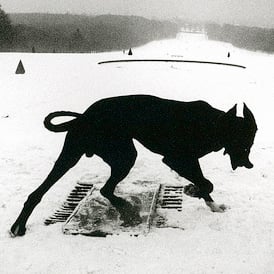

It looks cheap and poorly made, though. With this budget, they could have just made scale armor that actually looks like scale armor. Especially for prominent characters.
A.K.A u/hucifer


It looks cheap and poorly made, though. With this budget, they could have just made scale armor that actually looks like scale armor. Especially for prominent characters.


The costumes are good, but the armor in the show is all over the place.
According to this blog post by a military historian, that “scale” armor you linked is the worst of a bad bunch:
Perhaps the worst offender (which unfortunately gets a lot of screentime) is the odd Númenórean scale armor. Now scale armor was not necessarily a bad idea here (it could make for an interesting visual motif connecting the seafaring Númenóreans with fish-scales, for instance), but there are two immediate problems with this armor. First, it doesn’t seem structured like scale armor. The strong cording around the edges and rigid spaulders make it look like rigid armor made to look like it is composed of scales. The effect is only increased because the backing is shaped to give it pectoral muscles (and chests for women, which is doubly silly). But that’s not how historical scale armor hangs on the body.
Scale armor is [supposed to be] a lot more flexible (with the downside that the very flexibility of the scales means that a strike from below can pass beneath them and through the armor) and would thus hang and shape to the body. This armor does not do that. Instead as noted what this looks like are solid plates that are made to look like they are made out of scales. And that’s also not a terrible idea except that the actors are then also wearing scale-armor-print shirts underneath the armor which makes it clear that we’re to understand a flexible scale armor covering the whole of the upper body, which this clearly isn’t.
What on earth is this armor made out of? The queen’s armor looks like it might be bronze, albeit less well polished than I’d expect for royalty, but everyone else’s scale armor is made of this dull off-white material that looks like plastic or pressed foam, presumably because it is plastic or pressed foam. Surely this stuff should be made of iron?


All the major outlets are reporting that the FBI confirms it’s him now. Very confusing, all round.


Shooter appears to be a white male, aged 20s or early 30s by the look of it. The t-shirt he was wearing is allegedly marked with branding for a firearms-related YouTube channel.
https://x.com/Shadi_Alkasim/status/1812315218258833590
Edit: Possible suspects are either Maxwell Yearick, previously arrested while demonstrating against Trump in Pittsburgh on a previous occasion, or a Thomas Matthew Crooks, according to the NY Post.
Hasn’t been officially ID’d yet though, so still speculation.


And every time, the taxpayer foots the bill. Until the funds start coming from police pensions, nothing is going to change.


Sorry, as per the rules of this community you’re not allowed to see them as human.
*Sympathy for enemy combatants in any form is prohibited.


Lol you’re right about this giving native English speakers a headache. I’m not sure the subjunctive is the correct explanation here, though.
The subjunctive mood in English primarily uses the past tense form of verbs (“were,” “were to,” etc.) to convey wishes or counterfactuality. E.g. ‘I wish you wouldn’t drink so much coffee’, or 'If I were you, I wouldn’t…"
However, ‘would you like a coffee?’ is a direct question of preference, which means it technically is using the indicative mood rather than the subjunctive. Here, ‘would’ functions as a model verb to soften the request and make it more polite.

That’s what fascism is, yes. The point being made, I think, is that Democrats are claiming to be anti-fascist while also supporting a fascist government in Israel.


Now there’s an idea.


Ah yeah, I see what you mean. Fair point.


True.


On what basis doesn’t it work, though? I’m still not sure I understand what the problem is with your example.
You would be hand picking less qualified men to compete with the women just to fill it up.
Another way of looking at it is that we would in fact be widening the criteria of who would be considered “qualified”.


I would say the opposite, in fact.
Eugenics is the belief and practices that aim to “improve” the genetic quality of a human population to meet an idealized optimal standard. Under my proposed system, you could argue it would allow for a greater diversity of individuals that would be able to compete, and therefore would lower the necessity of having the optimal physical traits required in order to take part in each sport.


But like I said, that’s fine. The point is that we would then be categorizing people not according to their gender but by factors that directly affect their athletic performance.
Another benefit would also be that it would allow a wider range of people to participate at the national and international level, seeing as it would not remove all but those women and men who possess the optimal physical traits required for that particular sport.


That’s why they would need to take more into account than simply weight. Surely multiple physical and hormonal factors could also be measured and an aggregate total value be applied to each athlete.


In general, sure, but not all men are more muscular and stronger than all women.
Furthermore, even if, say 90% (or even 100%) of the heavyweight category were men, it would still be fairer for everyone.


For a while I’ve been thinking that all sports should get rid of gendered male/female competitions and replace them with weight categories that take into account physiological characteristics like muscle mass, testosterone levels, weight, height, etc. This would result in, say, three to four categories ranging from lightweight to heavyweight.
Why wouldn’t this work?


Yeah, I know that gnostic atheism is a theoretical position to hold, but I’ve never actually met an atheist that holds that view. The vast, vast majority of atheists ascribe to a scientific world view that is based around the concepts of evidence and burden or proof. As such, trying to argue belief in the non-existence of a non-existent being (i.e. “I firmly believe that God definitely doesn’t exist”) is not compatible with that logic, whereas “I don’t believe in God, because there isn’t enough evidence” is.
When it comes to explaining atheism to religious friends and family members, I’ve found the best approach to be this: Ask them if they believe in any other Gods except their own (Zeus, Ganesh, The Yellow Emperor, etc.) When they say no, you say “Ok, so my list of Gods I Don’t Believe In is one longer than yours.”


there’s no wyantonrpove the existence of A god, atheists must believe that that’s the truth.
What you’re describing here is agnosticism, not atheism. Agnostics claim that the existence of God is either 1) not known, but certainly possible, or 2) unknowable to begin with.
Atheism, on the other hand,
is not an affirmative belief that there is no god nor does it answer any other question about what a person believes. It is simply a rejection of the assertion that there are gods. Atheism is too often defined incorrectly as a belief system. To be clear: Atheism is not a disbelief in gods or a denial of gods; it is a lack of belief in gods.
It’s the wrong way around for that, sadly.